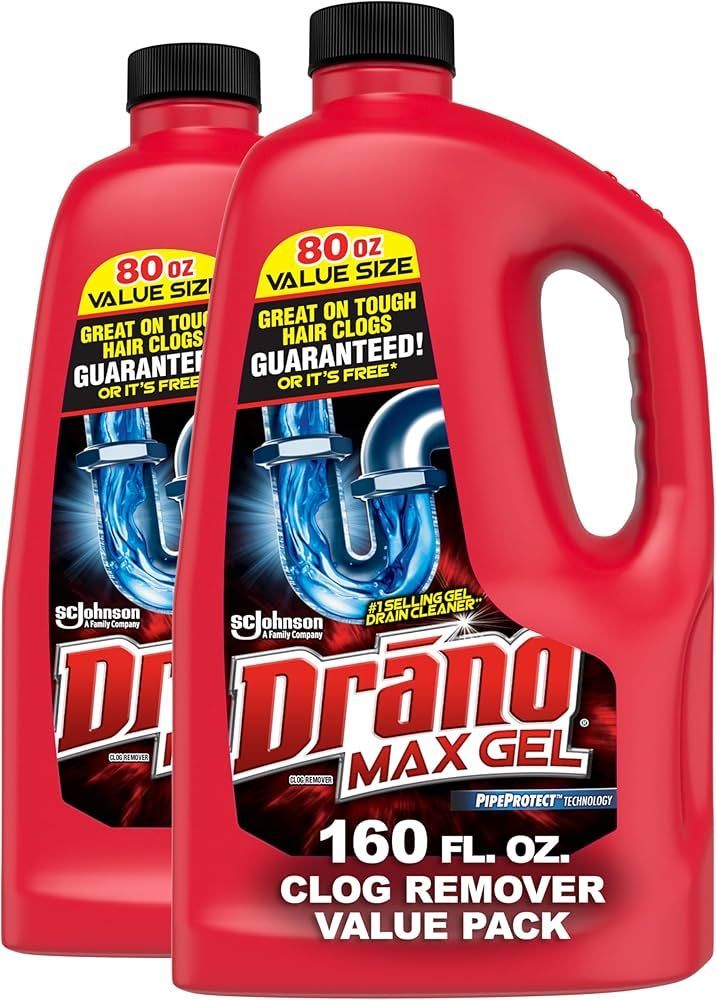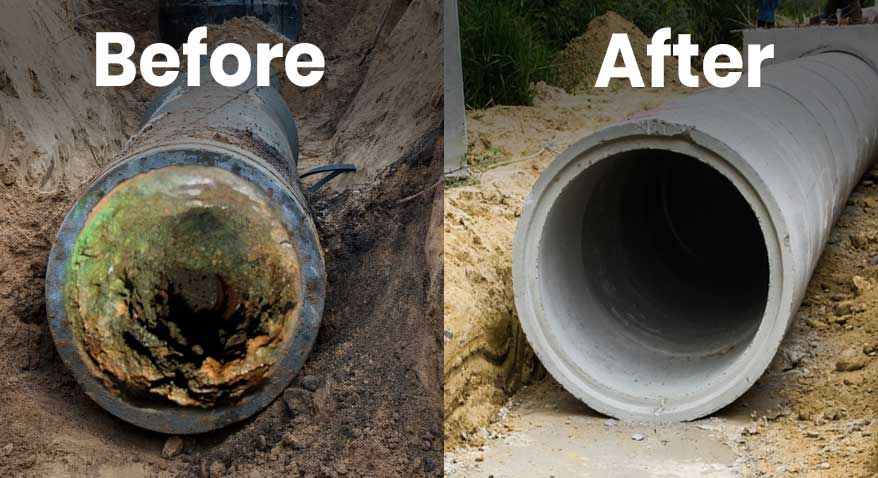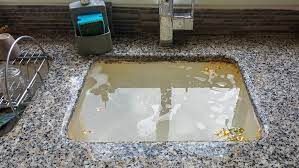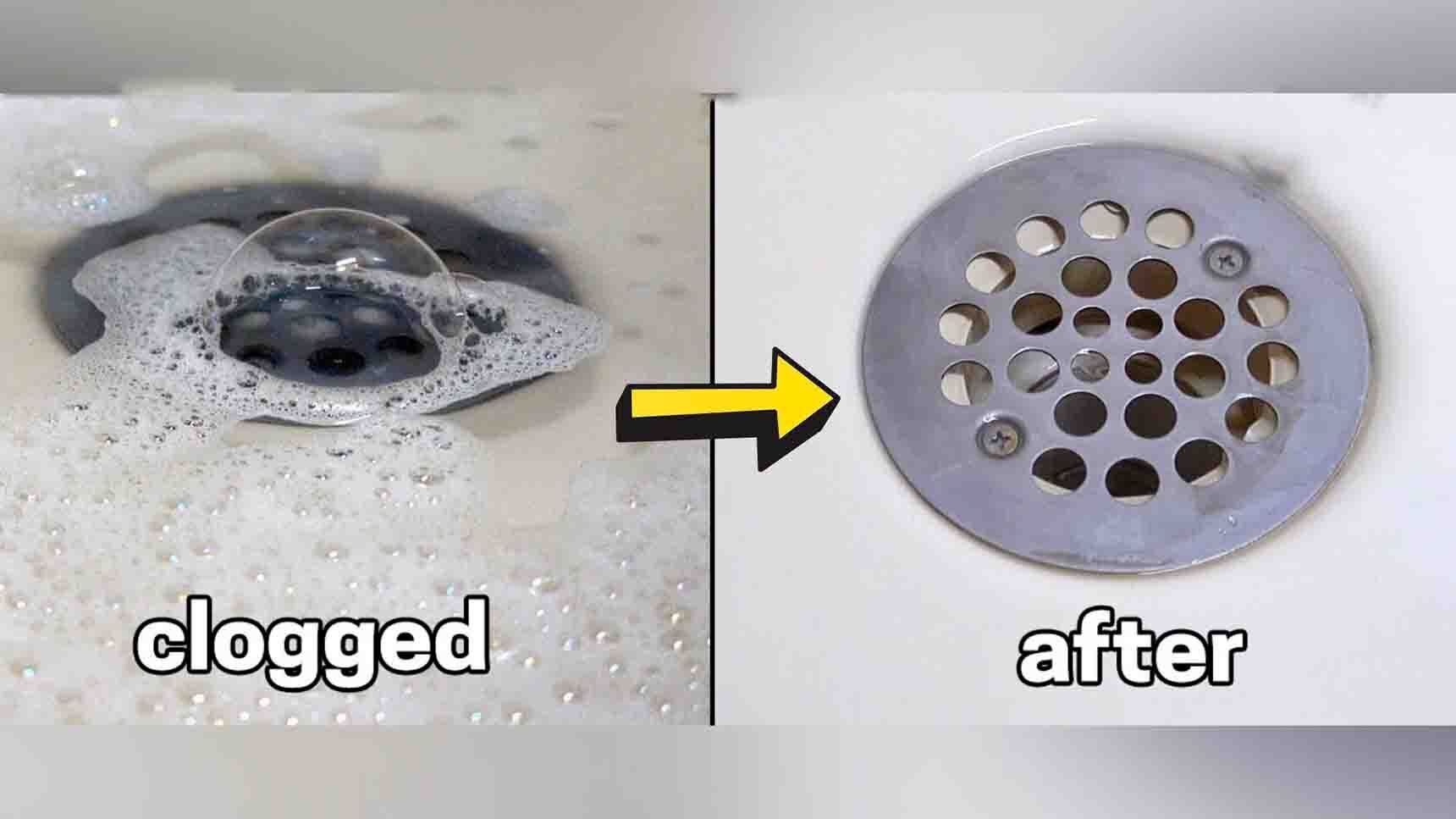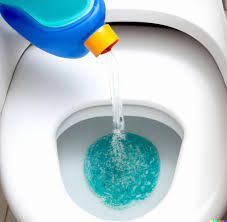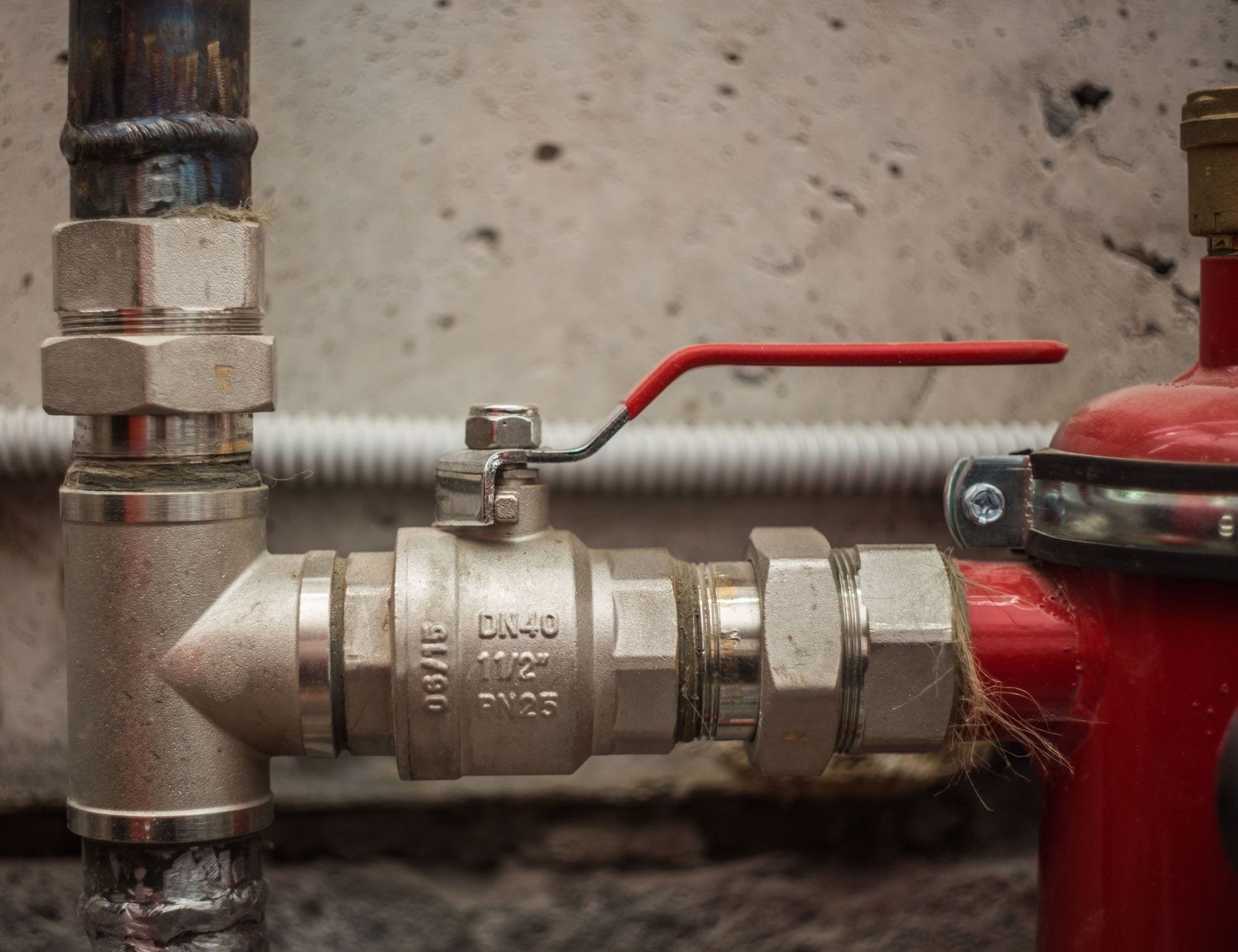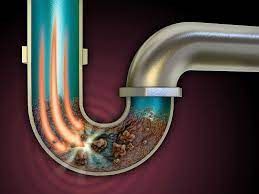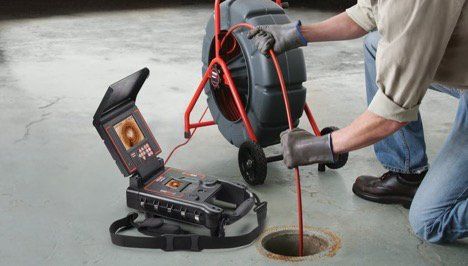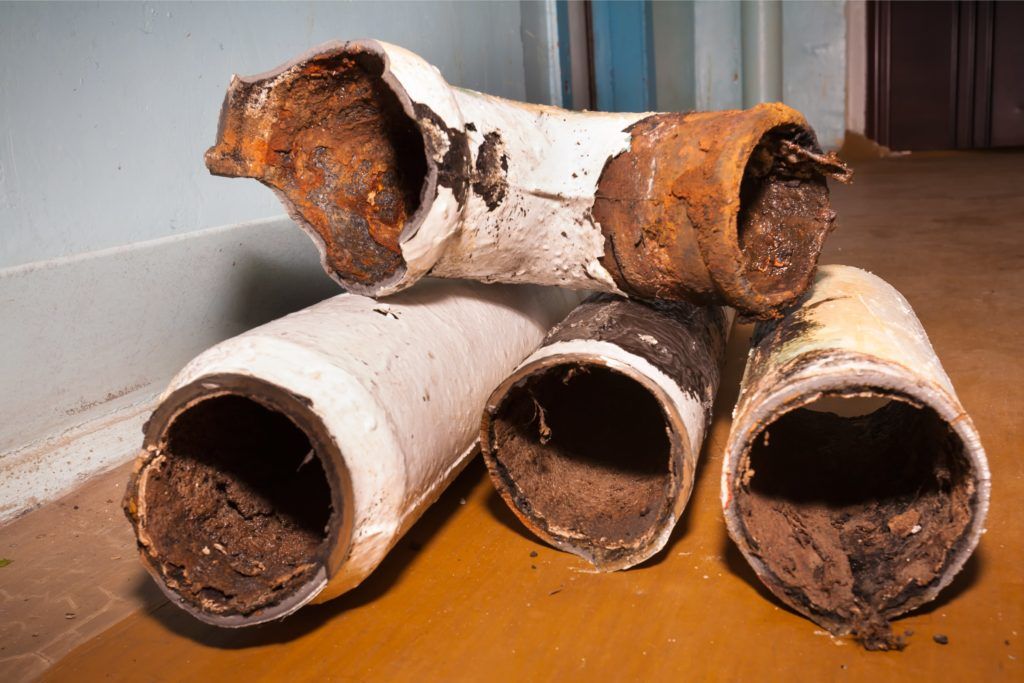Main Sewer Line Clog - How to Recognize it and What to Do
The sewer line is the pipe that connects your home to the main sewer line in the street. It runs under your driveway or sidewalk, connecting to the sewer system. Your sewer line may be clogged because it’s too long, too narrow, or not properly maintained. But there are many other reasons why your sewer line might be clogged that you need to consider. Here are some things to look for, and steps for what you can do when the main sewer line in your Denver home clogs up.
The main thing to do in a situation like this is not to panic. Stay calm and do a little troubleshooting to gather information before calling a Denver sewer service. That way you can give them detailed information that will help them solve the problem quickly and efficiently.
Why is a Clogged Sewer Line Different from a Regular Clogged Drain?
- Multiple slow-running drains. Usually, when you have a problem like this, it’s not just one drain that is affected. You may start to notice other drains running slowly, with the ones closest to the clog being the slowest. One slow drain is not a sign of trouble, but when it’s several, it is an indicator that something is wrong.
Other drains backing up. Another sign of a main sewer line clog is when you flush the toilet and brackish water starts backing up in your sink or shower drain. It may also occur when using the washing machine, or whenever water is flushed through a drain. The water can’t get through the clog, so it goes wherever it can.
What you might notice is not just any water, but dark, murky water—sometimes with a distinctly unpleasant odor—making its way into your tub, shower, or even a basement floor drain. Unlike a simple leak or clear overflow, this water is often mixed with waste material, making it not only gross but potentially hazardous.
That’s because it can contain raw sewage, so it’s important to be extra cautious: suit up with gloves and use heavy-duty cleaners if you need to tackle the mess.
Bottom line: when you see water coming up in places it definitely shouldn’t be, especially if it’s dark and smelly, it’s a classic warning sign that your main drain is blocked and looking for the path of least resistance.
Gurgling sounds. This familiar sound is often heard when the clog is still able to drain water, but it is having difficulty. It may appear as a “glug, glug, glug” after flushing the toilet or turning off the sink tap. A gurgling sound is an indicator that something is blocking the line making it difficult to drain.
Foul odors coming from the drains. If you get a really bad smell coming up out of your drains, it’s an indicator that sewage water is collecting in them, and the smell is creeping up.
What Makes Main Sewer Line Clogs Different?
When you have a clogged drain in your house, your first instinct is probably to grab a plunger. However, main sewer line clogs are a whole different beast. Standard plunging won’t do much good—these drain lines are typically buried deep underground, far from your home’s fixtures. As a result, you often need special equipment and professional know-how to handle them.
If the main sewer line is clogged, you might notice widespread plumbing problems throughout your home—multiple drains won’t work properly, and you could even end up with flooding or water damage if the issue isn’t addressed promptly. While it’s not a typical DIY fix, you’re not entirely powerless. There are a few steps you can take to keep things from getting worse until a plumber arrives.
What to Do About Possible Main Sewer Line Clog
If you have all the signs of a main sewer line clog, don’t panic. This is something that can be fixed with the right tools and experience. Proceed with the next steps.
- Stop using the water!
- The water has nowhere to go and will just continue filling up the drain, so stop using water. You’re adding to the problem every time you let any water down the drain.
- Find your sewer & main clean out line
- Locate your sewer clean out line. It may be located in your yard or under the house, possibly in the basement. This saves time and will help you get to the clog faster. Open the cap to release some of the pressure in the line but be careful to avoid contact with any water that comes out. If your clean out is in the basement or in a crawl space, you may want to just call a plumber because it can be a tricky job.
- Clear the clog, if you can – Check out our blog on How to clear a main line clog?
6. If you happen to be a handy DIYer, you may be able to rent an industrial snake from an equipment supply company and clear the clog yourself. A professional plumbing-grade snake can usually clear most clogs with a little time and patience. Run the snake down the main line until you clear the blockage. If you don’t think you have the skills, or would rather avoid DIY, just call a Denver sewer expert like Drain Brain to come out and do the job.
Pro tip: If the clog is truly in the main sewer line, typical home remedies—like pouring chemicals down the drain or using a standard plunger—won’t work and can sometimes make the problem worse. At this point, waiting for a professional is the safest bet.
Avoiding Future Clogs
Having to deal with clogs is not fun, so avoiding that situation is better for everyone. Follow these tips for preventing future clogs.
- Never put bacon grease, coffee grounds, paint, or anything else down your drain. Grease solidifies at room temperature, so the grease from those hamburgers you cooked last night can cause another block if you’re not careful. Pour hot grease into an empty food can and throw it in the trash when cooled.
- Never flush baby wipes, paper towels, or facial cleaning tissues down the toilet. These materials do not dissolve and clump up in the drains. No matter how wet a baby wipe or paper towel gets, it won’t break down enough to pass through efficiently.
- Use eco-friendly toilet paper. It’s nice to have fluffy soft toilet paper (leading brand names) but what you want is toilet paper that dissolves efficiently. The way to test it is to place one square in the toilet bowl and leave it there for an hour. If it hasn’t broken down after that time, you should try a different brand. Denver sewer services recommend septic-safe toilet paper.
- Keep an eye out for tree roots. Sewer line blockages are often caused by tree roots that have grown into the pipes or by a broken sewer pipe itself. Main sewer pipes are at least six inches in diameter, so a hair clog or other minor issues are unlikely to be the cause. It's also possible a severe clog such as years of grease buildup has blocked the pipe. Regular inspection can help catch these issues before they become major headaches.
Remember, when it comes to your main sewer line, a little prevention and quick action can save you from a very messy—and expensive—problem down the line.
What are the Risks of Ignoring a Clogged Sewer Line?
Risks of Ignoring a Clogged Sewer Line
If you shrug off a main sewer line clog, you could be in for more than just a few sluggish drains. Left unchecked, these blockages can quickly escalate from annoying to disastrous—think raw sewage making an unwelcome appearance in your Denver home. Here's what can happen if you decide to look the other way:
- Backups in unexpected places. When the main sewer line is clogged, wastewater doesn’t politely stay put. Instead, it migrates to the lowest fixtures—tubs, floor drains, or even your basement shower. Rather than clean water, you’ll likely find dark, foul-smelling liquid bubbling up. Not exactly what you want to see—or smell—after a long day.
- Potential water damage and health hazards. Sewage doesn’t just look and smell bad—it carries bacteria and harmful pathogens. Letting it sit can damage floors, walls, and anything else it touches, not to mention pose a serious health risk to anyone nearby.
- Total shutdown of household plumbing. What starts as a slow drain can quickly turn into bathtubs refusing to empty, toilets backing up, and sinks that won’t budge. Because all the drains in your house connect to the main line, a big enough clog effectively brings your entire plumbing system to a halt.
- Costly repairs down the road. If a clog is ignored too long, the pressure can crack or break pipes, sometimes even under your foundation. Emergency clean-up and pipe repairs aren’t gentle on your wallet, especially if structural damage occurs.
In short, a clogged sewer line isn’t something to brush off or put at the bottom of your to-do list. Catching and addressing it early can save you serious headaches—both literally and figuratively—down the line.
How do You Shut Off Your Home's Water supply in an Emergency?
How to Shut Off Your Home’s Water Supply
Once you’ve stopped using the faucets, it’s important to take things a step further by shutting off your home’s water supply. This helps prevent more water from accidentally entering the clogged line—especially helpful if someone in your household forgets, or an appliance (like a dishwasher or washing machine on a timer) tries to run while you’re dealing with the clog.
To shut off the water, locate your main shut-off valve. In many Denver homes, you’ll find this valve:
- Near the water meter (look in the basement, crawl space, or utility closet)
- Sometimes just outside the house, often near an exterior wall or in a ground box by the sidewalk
The shut-off valve usually looks like a round wheel or a sturdy lever. Turn the wheel clockwise as far as it will go, or if it’s a lever, turn it 90 degrees until it stops. This fully closes the valve, cutting off the water supply to your home until you’re ready to open it back up.
What to Do About Possible Main Sewer Line Clog?
If you have all the signs of a main sewer line clog, don’t panic. This is something that can be fixed with the right tools and experience. Proceed with the next steps.
1. Stop using the water!
The water has nowhere to go and will just continue filling up the drain, so stop using water. You’re adding to the problem every time you let any water down the drain.
2. Find your sewer & main clean out line
Locate your sewer clean out line. It may be located in your yard or under the house, possibly in the basement. This saves time and will help you get to the clog faster. Open the cap to release some of the pressure in the line but be careful to avoid contact with any water that comes out. If your clean out is in the basement or in a crawl space, you may want to just call a plumber because it can be a tricky job.
Many Denver homes have a sewer line cleanout, which is a large pipe with a cap on the end, often found in your basement, crawl space, or outside along the foundation. Removing this cap gives you direct access to your main sewer line. Occasionally, you might get lucky—if the clog is right at the cleanout, you could spot the blockage and pull it out manually.
Just use caution: water and debris may be under pressure and could come rushing out when the cap is removed. Always wear gloves and protective gear, and if anything feels over your head, don’t hesitate to call a pro.
3. Clear the clog, if you can - Check out our blog on How to clear a main line clog? Clear the clog, if you can Check out our blog on- How to clear a main line clog?
If you happen to be a handy DIYer, you may be able to rent an industrial snake from an equipment supply company and clear the clog yourself. A professional plumbing-grade snake can usually clear most clogs with a little time and patience. Run the snake down the main line until you clear the blockage. If you don’t think you have the skills, or would rather avoid DIY, just call a Denver sewer expert like Drain Brain to come out and do the job.
That said, it’s important to know that most main line clogs aren’t simple blockages you can fix with a bottle of drain cleaner or a quick snaking. Many sewer line issues are caused by broken pipes, tree root intrusion, or other problems deep within the plumbing system—well beyond what most homeowners can address on their own. Even if you manage to clear a minor clog, you might not be addressing the real issue, and it could come right back.
Professional plumbers have heavy-duty equipment and the experience to diagnose what’s really causing the problem, whether it’s a collapsed pipe, root growth, or something else lurking underground. In some cases, major repairs like pipe replacement or digging up a section of your yard may be necessary. If you’re not sure what you’re dealing with, or if the clog returns quickly after DIY efforts, don’t hesitate to bring in the pros to make sure the job—and your peace of mind—are done right.
While it’s technically possible to clear out some small sewer line clogs yourself, it’s rarely a good idea. Most main line blockages aren’t just basic gunk—they’re often caused by broken pipes, invading tree roots, or other deep-rooted issues that go well beyond what a household snake can fix. Even the handiest DIYer usually doesn’t have the equipment or experience needed for these tougher jobs.
Professional plumbers use heavy-duty main sewer line cleaners and have the expertise to pinpoint the real cause of your problem. Simply dumping a bottle of main drain cleaner down the toilet won’t solve clogs caused by roots or damaged pipes—and it definitely won’t help you diagnose bigger plumbing issues lurking in your system.
Getting a pro out to inspect your whole system is the best way to make sure nothing gets missed. In some cases, you might even need to replace sections of pipe, which can mean digging up parts of your yard and tackling some serious plumbing work. So, if you’re not sure—or just want to avoid a much bigger headache—don’t hesitate to bring in an expert.
Avoiding Future Clogs
Having to deal with clogs is not fun, so avoiding that situation is better for everyone. Follow these tips for preventing future clogs.
Never put bacon grease, coffee grounds, paint, or anything else down your drain. Grease solidifies at room temperature, so the grease from those hamburgers you cooked last night can cause another block, if you’re not careful. Pour hot grease into an empty food can and throw it in the trash when cooled.
Never flush baby wipes, paper towels, or facial cleaning tissues down the toilet. These materials do not dissolve and clump up in the drains. No matter how wet a baby wipe or paper towel gets, it won’t break down enough to pass through efficiently.
Use eco-friendly toilet paper. It’s nice to have fluffy soft toilet paper (leading brand names) but what you want is toilet paper that dissolves efficiently. The way to test it is to place one square in the toilet bowl and leave it there for an hour. If it hasn’t broken down after that time, you should try a different brand. Denver sewer services recommend septic-safe toilet paper.
Sewer line blockages are usually caused by a broken sewer pipe or tree roots that have grown into the pipes. Main sewer pipes are at least six inches in diameter, so a hair clog or other minor issues are unlikely to be the cause. ... It's also possible a severe clog such as years of grease buildup has blocked the pipe.
Main Sewer Line Clog Cost
The national average cost to unclog a main sewer line is between $350 and $650, with most people paying around $475 to clean a mid-sized clog by hydro jetting the main sewer pipe between a house and municipal main line.
Drain Brain LLC does the Sewer and Drain video inspections for $100.00
Service Areas
Arvada, Aurora, Lakewood, Bennet, Broomfield, Brighton, Castle Rock, Castle Pines, Centennial, Commerce City, Columbine, Dacono, Erie, Englewood, Firestone, Federal Heights, Ft Lupton, Golden, Greenwood Village, Greeley, Hudson, Highlands Ranch, Ken Caryl, Lafayette, Lakewood, Littleton, Longmont, Louisville, Northglenn, Superior, Sherrelwood, Thornton, Welby, Windsor, Westminster, Wheat Ridge, Westminster and more call today 720-322-4845
Thinking quickly and having a plan of action is the key to solving main sewer lines clogs. Call Drain Brain @ 720-322-4845, your Denver sewer service company today, for all types of plumbing, sewer, and mainline cleanout services. We’ll get you back up and running again in no time!
Drain Brain LLC is a Full-Service sewer, drain inspection & repair company in Thornton, CO. Known as a drain’s specialist, we serve commercial and residential customers in the Denver metro area by providing professional sewer inspection, sewer maintenance, drain cleaning, trenchless sewer line repairs, sewer camera inspection & scope services, as well as trenchless sewer line repairs for your specific needs. Be assured that our specialists will help you when your sewer backs up and have it functioning properly in no time at all and we offer 24/7 emergency services.
Don't let your clogged drain give you a headache, contact our invaluable drain cleaning experts for sewer inspections and repairing sewer lines.
